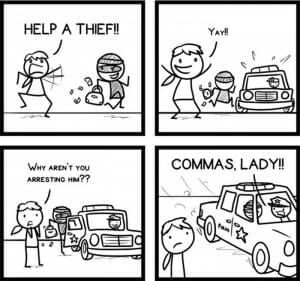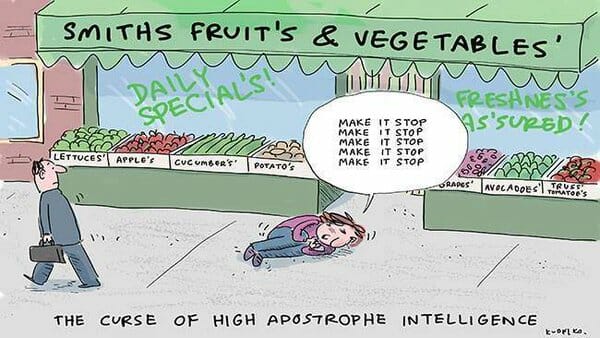 If you’ve been reading Communicate! for a while, you know I’m not a grammar snob. In fact, my writing online would make my high school English teacher cringe.
If you’ve been reading Communicate! for a while, you know I’m not a grammar snob. In fact, my writing online would make my high school English teacher cringe.
Using sentence fragments. And starting sentence with conjunctions.
Repeating words for emphasis, without changing or alternating or varying them or combing through the thesaurus for other options.
Writing one-sentence paragraphs when I really want to make a point.
Why It’s Sometimes OK to Break the Rules
Part of the reason I write this way is that I do most of my writing online. Reading something on a screen is harder than perusing it in print. So, be kind to your reader. When you write for online publication, use shorter sentences and paragraphs, and leave more white space, if you want to be read.
The main reason it’s sometimes OK to break the rules has nothing to do with the medium, however. It’s all about the message. You should write in a way that helps to make your point.
Great writers have always known this. Jane Austen used the passive voice and split infinitives. Ernest Hemingway wrote sentence fragments. Charles Dickens’ sentences went on and on, even though he lampooned German writers for doing the same thing.
And Winston Churchill ended sentences with prepositions (although he probably didn’t say, “This is the type of arrant pedantry up with which I will not put”).
But the Rules Are Our Friends
Most of the time, the rules are there to help you. They’re like the street signs and traffic lights when you’re out driving: they make your direction clear to your reader and keep you from smashing into obstacles on the way to your conclusion.
You need to know the rules before you decide that in this case it makes sense to flout them. (And please, know the difference between “flout” and “flaunt”!)
Otherwise, you could end up saying the exact opposite of what you meant to say. Or at best, you could distract readers from what you meant to say, and have them grinding their teeth about how you said it, instead.
Thanks to Robert Bruce of 101 Books for inspiring this post.

